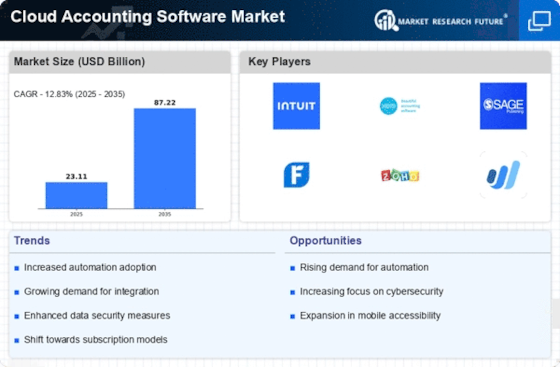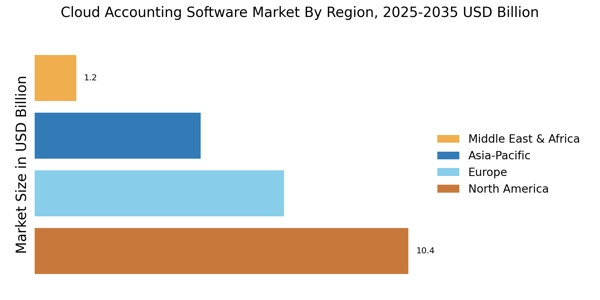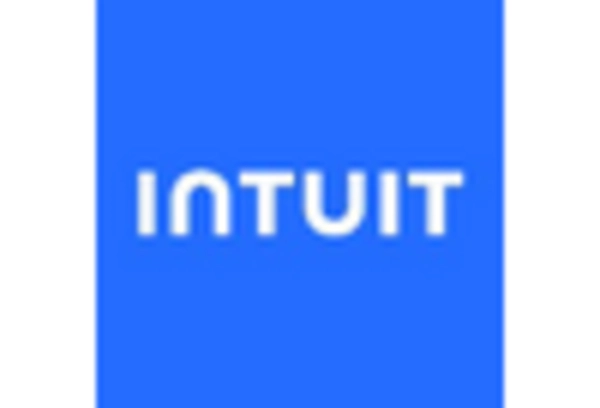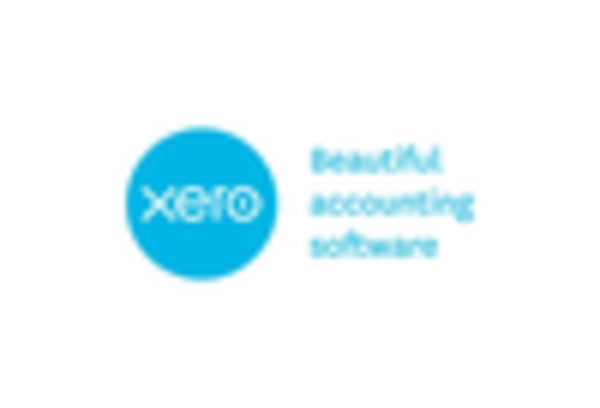The Cloud Accounting Software Market is currently experiencing a transformative phase, characterized by rapid technological advancements and evolving consumer preferences. Businesses are increasingly recognizing the advantages of cloud-based solutions, which offer enhanced accessibility, scalability, and cost-effectiveness. This shift towards digitalization is not merely a trend but appears to be a fundamental change in how organizations manage their financial operations. As firms seek to streamline processes and improve efficiency, the demand for innovative cloud accounting solutions continues to grow. Furthermore, the integration of artificial intelligence and machine learning into these platforms suggests a future where automation plays a pivotal role in financial management, potentially reducing human error and increasing accuracy.
In addition to technological advancements, the Cloud Accounting Software Market is also influenced by changing regulatory environments and the need for compliance. Organizations are increasingly required to adhere to stringent financial regulations, which necessitates robust accounting solutions that can ensure compliance while providing real-time insights. This dual focus on innovation and regulatory adherence indicates a complex landscape where providers must navigate both technological and legal challenges. As the market evolves, it is likely that new players will emerge, offering specialized solutions tailored to specific industries, thereby further diversifying the offerings available to consumers.
Cloud accounting software refers to web-based accounting platforms that enable businesses to manage financial operations, reporting, and compliance through scalable finance management software solutions. The rising adoption of cloud bookkeeping software and online accounting software is driven by the flexibility and real-time access offered by cloud-based accounting software solutions. Cloud accounting software for small business is witnessing strong demand, as online accounting software for small businesses offers affordability, scalability, and simplified financial management. Modern accounting software programs are delivered as comprehensive accounting systems, combining invoicing, tax management, and reporting within unified online accounting packages. Advanced accounting platforms provide businesses with integrated accounting softwares for business, enabling automation, compliance, and seamless financial reporting.
Increased Adoption of Remote Work Solutions
The Cloud Accounting Software Market is witnessing a notable rise in the adoption of remote work solutions. As organizations embrace flexible work arrangements, the demand for accessible and collaborative accounting tools has surged. This trend indicates a shift towards platforms that facilitate real-time collaboration among teams, regardless of their physical location.
Integration of Advanced Technologies
The integration of advanced technologies, such as artificial intelligence and machine learning, is becoming increasingly prevalent within the Cloud Accounting Software Market. These technologies enhance data analysis capabilities, automate routine tasks, and provide predictive insights, thereby improving decision-making processes for businesses.
Focus on Compliance and Security
As regulatory requirements become more stringent, the Cloud Accounting Software Market is placing a heightened emphasis on compliance and security features. Providers are developing solutions that not only meet legal standards but also ensure data protection, thereby fostering trust among users and enhancing overall market credibility.

















